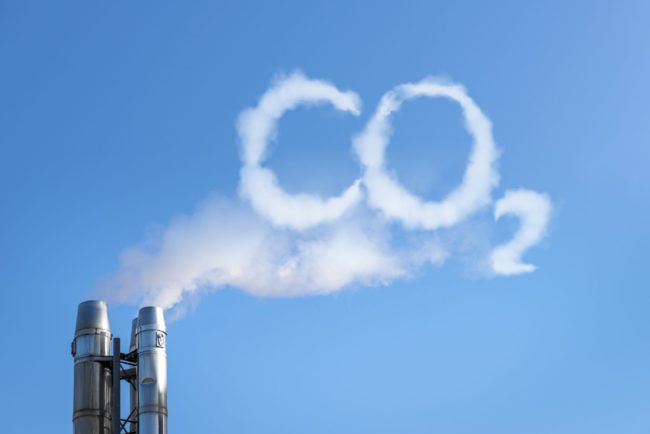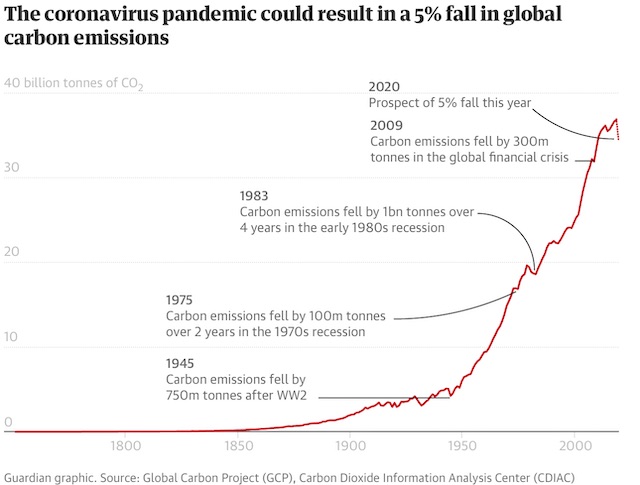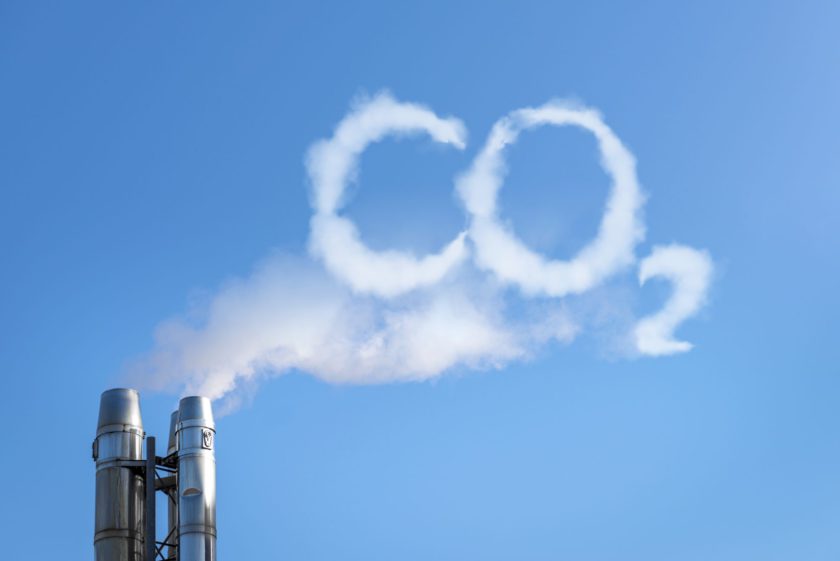
For what are rather obvious reasons vast numbers of humans are no longer burning fossil fuel. How big will the impact be, just how great a reduction are we about to measure?
The suggested answer is 5%
As reported by the Guardian using recent analysis along with historical data from the Global Carbon Project, the estimated reduction in 2020 is 5%, or 2.5bn tonnes.

In context, you can see that even this dip only knocks us back a few years. Even with such a decline we are way above the levels of CO2 emissions of even 10 years ago.
The fall is not a win, but rather a trap that lulls us into a false sense of progress.
It does still change some thinking
Because we have been forced to learn how to work from home such patterns can influence future thinking.
We can see that we don’t all need to travel to offices, nor do we need to take flights.
So what comes next?
Do we ramp up our emissions to previous levels and in effect wipe out this blip, or do we use it as a cue to rethink how we work and interact?
The key moment for the climate is what comes next. Once COVID-19 has been beaten and we move on, do we then go right back to our excessive consumption, or do we leverage this and embrace better more sustainable ways of working?
